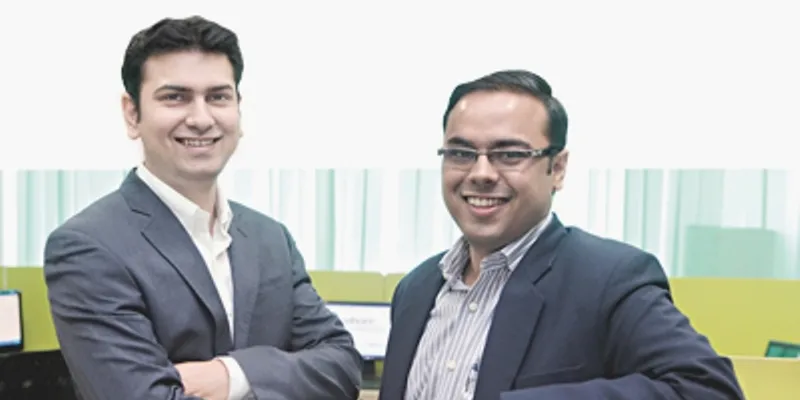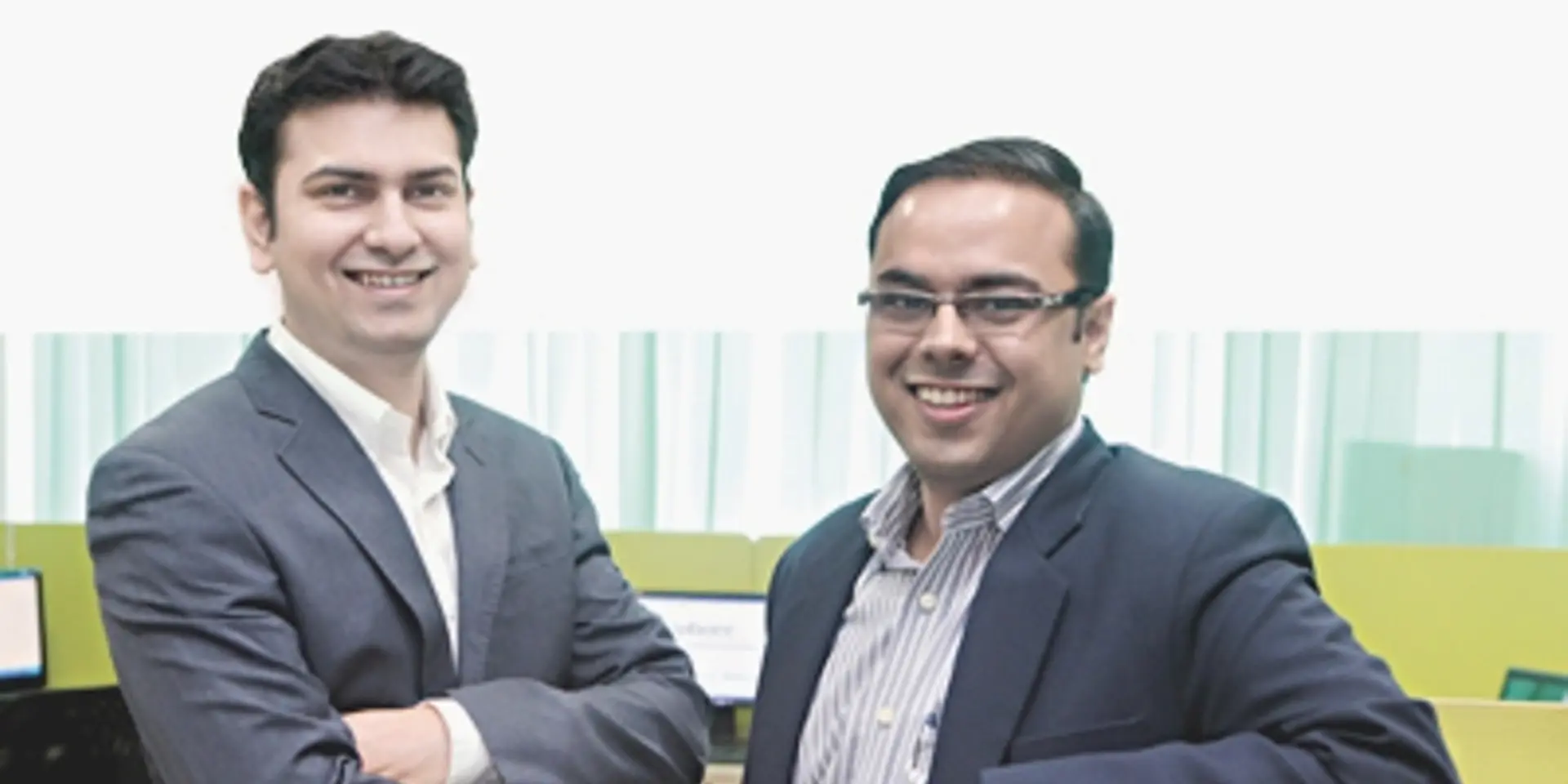How John Chambers helped Uniphore to think beyond valuation and focus on building a team
Uniphore is valued at more than $100 million and is generating close to $20 million in revenues, but Co-founder Umesh Sachdev believes that working with John Chambers is about reinforcing values and being prepared at all times.
In the summer of 2016 Uniphore Founders Umesh Sachdev and Ravi Saraogi made the news for their speech technologies product that helps farmers know the price of crops over a phone call, or by pressing numbers on a regular feature phone. For that, Umesh was selected by MIT Tech Review and The Mint as one of the most promising entrepreneurs under 35 that year because the impact it could make on society with technology-led business models.
This was around the time that Uniphore was transforming itself into a full-stack consumer service company with speech analytics, voice biometrics and virtual assistants for business process management.

Ravi and UmeshIt uses the SaaS model as a primary way of adding value to businesses.
As luck would have it, Cisco's former Executive Chaiman John Chambers began mentoring the eight start-ups picked up by MIT and Mint in April 2016. Something about Uniphore caught his eye. People at the meeting say Umesh Sachdev wowed John Chambers with an unexpected question. Apparently Umesh was trying to do business with Cisco and Huawei, but Huawei was closing in a business deal faster than Cisco. This direct approach led John to mentor Uniphore for an hour every month. Umesh became the student and he would absorb everything that was told to him.
“I was exhausted after eight years of running a startup and that's when I realised I needed someone to show me how to dream big. It is very important for founders to get the right mentors,” says Umesh.
It's all about asking someone the right questions and being prepared to ask these very questions. Chambers had ended his 3-month mentoring session with all the startups as part of Mint and MIT. But, Umesh then pursued Chambers, who agreed to be mentor and Umesh from then on would always ask questions about business and how it was built. Umesh would ask about leadership styles and how should one sell a product in different markets. At the time, Chambers was impressed and he would tell Umesh to focus on leadership and its core tenets of Vision, Team, Culture, and Communication.
“John would reiterate that a CEO’s role is to manage a diverse team with values, and that culture can never be a process. He keeps reiterating this in every meeting,” says Umesh. Today Umesh is out there putting the customer first, encouraging his team in India to innovate and collaborate with people brighter than him.
In it for the long run?
In 2017 when Umesh had two term sheets – one with IIFL and another with corporate, which would eventually acquire his company – he was unsure whether to sell or not and was caught between the prospect of making quick money and losing control of his company.
“I was really tired after eight years of working, but that's when John asked me an important question and I am glad that I answered it right,” recalls Umesh.
Chambers asked him what his dilemma was: did he want to sell or build a large organisation? He also told Umesh that when you’re in your mid-thirties, it is easy to sell:. He outlined two choices:
- If you sell today, the chances of success the second time are minuscule. So he might as well focus on building a large organisation.
- he could sell the company and eventually work for someone else as money made through a sale would never add any value to the innovation ecosystem.
To Chambers’s surprise, Umesh said he wanted to build a large company but did not want to be stifled by any outside interference while doing this. Thats when John Chambers decided to come in as a lead investor with IIFL in Uniphore’s Series B round and steer the company in its journey to becoming a large corporate. Uniphore has raised $8.8 million in total and has undisclosed funding from Chambers, who owns a significant chunk of the company.
This was in mid-2017. Since then, Uniphore has gone global with 40 percent of its revenues coming from the US, with long-term contracts from 6 customers. Asia still accounts for 60 percent of the company's revenues. They have clients like American Express, Axis Bank and ITC among the 100+ clients in its kitty.
Thanks to the company's growth, Umesh moved to the US and sealed a deal with a large insurance company there. Umesh believes that startups should be in regions that pay for the value derived from technology.
Even Singapore-based Co-founder Ravi Saraogi transformed himself thanks to the advice from Chambers and heads sales for their South Asian region. “Both of us were very shy and hence not good at public speaking. It all changes when global leaders guide you. Today we talk in public forums regularly,” says Umesh.
For Umesh, his life has changed totally. He is on a mission to reinevst and grow his business. He wants to help entrepreneurs build a business that can scale globally. Umesh was able to do so for two paradoxical reasons: Being prepared for meetings and being spontaneous as a result of being prepared.
Umesh also recounts their first cheque, a Rs 50 lakh grant from IIT Madras, where Professor Ashok Jhunjhunwala shook up Umesh and Ravi for not having a business and technology scale in mind. This was in 2010 and he had asked them to pack their bags and leave IIT if they couldn’t get their act together. It was a warning to not things lightly and that money was not going to be easy to come by as long as they had a solid business strategy in mind. This time the duo realised they had to focus on creating business and technology milestones and meeting monthly targets.
In 2012 the duo began to take centre stage in India with their platforms. Their early platform VoiceNet, which enabled people to exchange information and conduct transactions through speech on their mobiles, was recognized by the mHealth Alliance and Rockefeller Foundation. Prof. Jhunjhunwala was Chair of the Rural Technology and Business Incubator (RTBI) at IIT and was selected as a winner of mHealth Alliance’s 2011 Innovators Challenge for his application of Uniphore’s VoiceNet platform. Jhunjhunwala was probably their first mentor.
It taught them that you probably need one type of mentor from zero revenue to $1 million you need one mentor and then from $1 million to $200 million you need another. “It's about constant learning. Ambitions must be set higher after every level that is reached,” says Mohandas Pai, MD of Aarin Capital.
No wonder Uniphore already has 6 patents with 6 more in the pipeline.
“I won't let you do anything that you don't want to do,” is another gem from Chambers. So finding the right mentor at the right time is key, and in this regard the founders of Uniphore have been quite fortunate. Today, Uniphore has all the right ingredients to become an even larger company.



